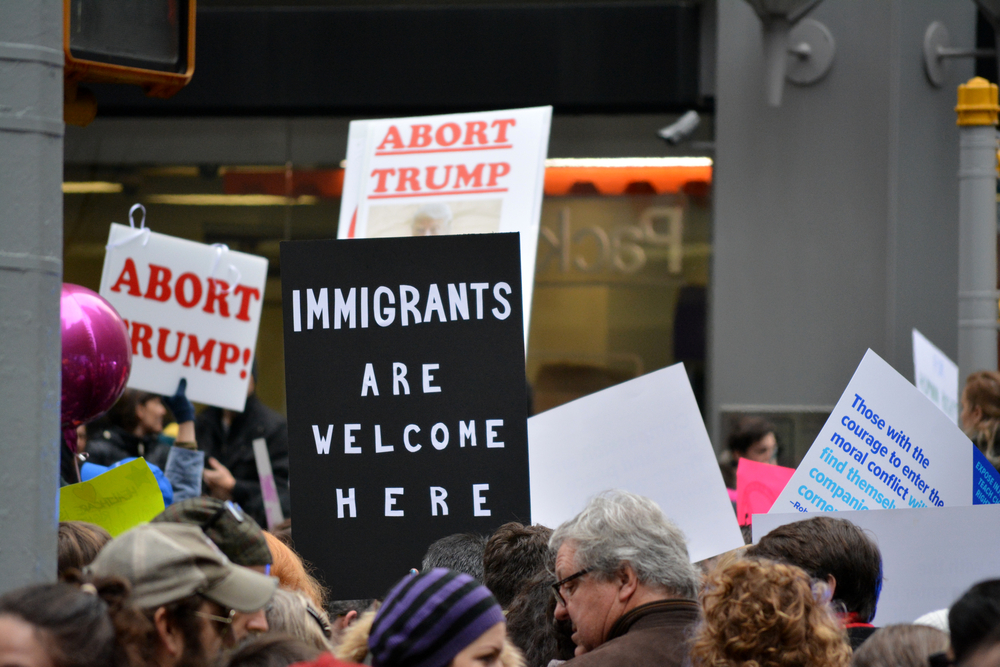Iranian OSU Student’s Wife Detained Over Weekend at JFK International

Over the weekend, a firestorm of protests around the Country erupted as 45th President of the United States, Donald Trump signed an executive order banning new refugee admissions for 120 days, barring seven countries — Iran, Iraq, Yemen, Somalia, Libya, Sudan, and Syria for 90 days and finally an indefinite halt on Syrian refugees from entering the country.
Most noticeably, the U.S. has not been clear how green card holders and permanent residents with dual citizenship are to be handled, resulting in what the Trump administration is calling an “inconvenience” to those affected, according to NPR. The administration has since walked back on their position on Green-card holders — they’ll be allowed in but the Customs and Border Protection will have the discretion to detain and question “suspicious travelers from certain countries,” according to the New York Times.
One of those affected was Parisa Fasihianifard, 24, and wife of Iranian OSU doctoral candidate of biochemistry. She had arrived at John F. Kennedy International Airport after an 18-23 hour flight from Tehran, Iran, to see her husband, Mohamad Zandian, 26, only to be detained and allegedly told to go home.
“I don’t feel safe anymore to stay here in the U.S.,” Zandian told CNN. “I don’t think that I will stay in the U.S. anymore because of this kind of treatment.”
Fasihianifard was released, however, and allowed to stay.
“We are relieved that Parisa Fasihianifard has been released and we are grateful for the hard work and assistance from our elected officials and other partners in helping us to get this situation resolved,” Ohio State University spokesman Chris Davey said in a statement. “However, we remain concerned about other members of the Ohio State community who might still be affected by this policy change and we remain committed to identifying those individuals and working to help them.”
Ohio State University President Michael V. Drake emailed faculty, students and staff about the executive orders.
“Yesterday and this morning, we have worked actively and directly with elected representatives to do everything we can to clarify this situation and move forward to a rapid and just resolution, and we will continue to keep the university community informed,” Drake wrote. “Ohio State joins our colleagues – including those represented in the Association of American Universities and Association of Public and Land-grant Universities – in concern over the effects of this policy.”
BROUGHT TO YOU BY




